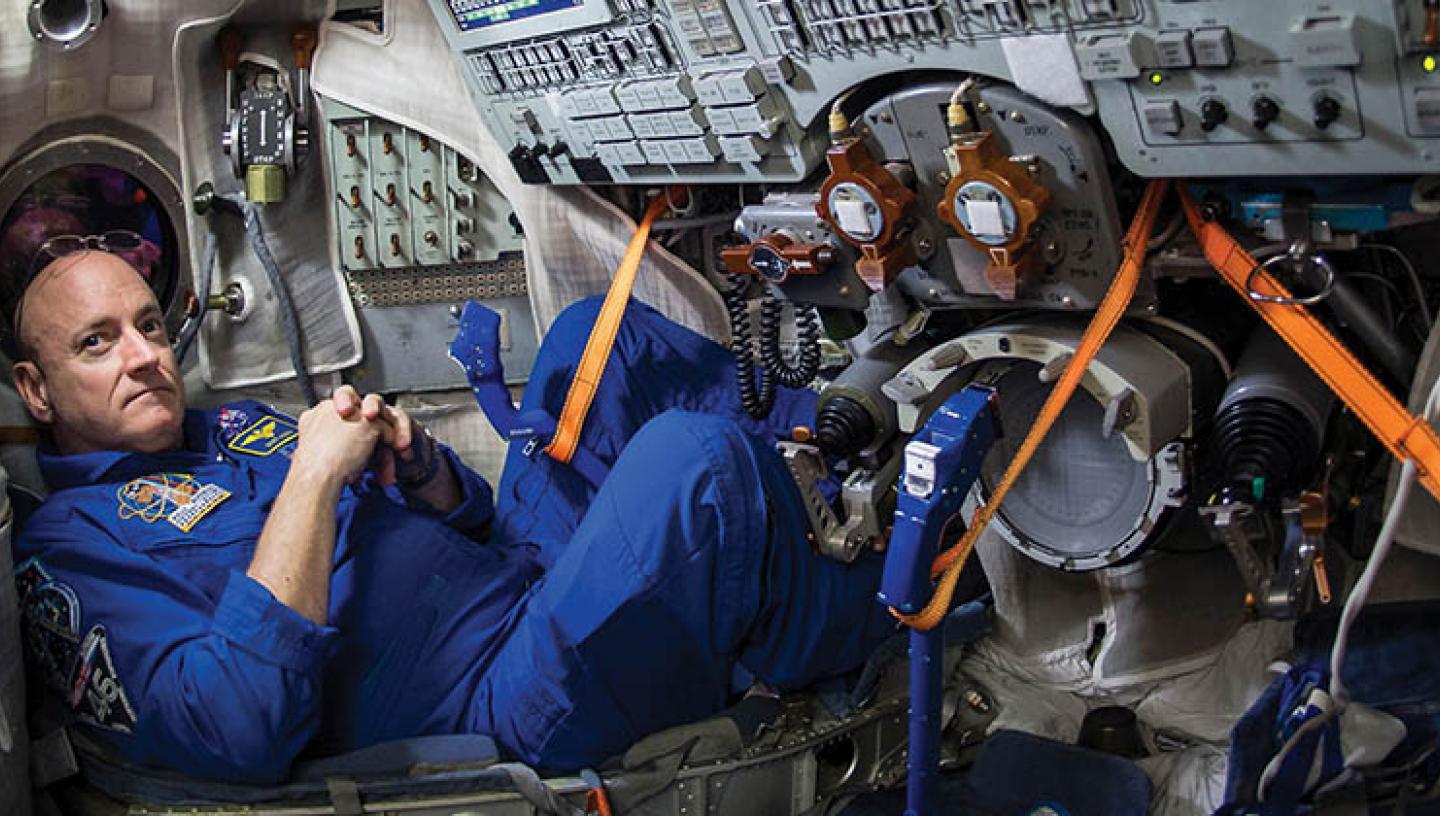
"When you're orbiting Earth, you no longer see countries, you see land. It makes you think globally." We interviewed NASA astronaut Scott Kelly...
In March 2016 Scott Kelly returned to Earth after a record-breaking one year aboard the International Space Station, becoming the American record holder for the most consecutive days spent in space. His mission was part of research into the practicality of future missions to Mars, when astronauts would need to spend far longer in space than currently. As an identical twin, Scott made the perfect test subject for such a mission – as well as being an adept astronaut.
He told us about the realities of life in space, the challenges of writing his book, and the future of space travel…
What did you miss most about life on Earth?
I missed my family—my children Sam and Charlotte and my partner Amiko. I also missed everything that we couldn’t have in space because we didn’t have gravity or an atmosphere: rain, water, sunshine.
Given the extreme health risks and the length of time spent away from friends and family, what is it that attracts people to space travel?
I always loved to take risks, and I think people who travel to space enjoy the adrenaline rush of doing something potentially dangerous. I was usually restless before I read The Right Stuff and became interested in being an astronaut.
As you orbited Earth, what struck you most about our planet when looking at it from this unique perspective?
When you’re orbiting Earth, you no longer see countries, you see land. It makes you think globally. You can also see pollution everywhere, and you see how vulnerable the earth’s atmosphere is. It makes you really want to protect it.

You talk a lot about the inspiration you got from reading fiction by Tom Wolfe as a young man. Even in a made-up story, it is possible to communicate something powerful and truthful? What is the value of a real-life account?
I hope my book, besides looking at life in space for a year, inspires a student like me who may not have been the most invested in school to know that you can turn your life around.
What was the biggest challenge you faced when writing this book?
Writing the book was such a different challenge to being in space. When I write a bad sentence, no one dies. But in many ways, shaping the different memories from my life into a whole narrative was a learning experience.
What are the next big milestones in space travel?
Considering my mission was part of our mission to Mars, I can’t help but say the next milestone I think we’ll cross is sending humans to Mars. We can do it—we just need the funding and the collective focus on this goal.
How do you feel about being used as a test subject for the rest of your life?
I considered it my duty to serve my country in the Navy, and I consider it a duty and a privilege to participate in scientific research through experiments like the one my brother and I are involved in.
Get your copy of Endurance: A Year in Space, A Lifetime of Discovery.